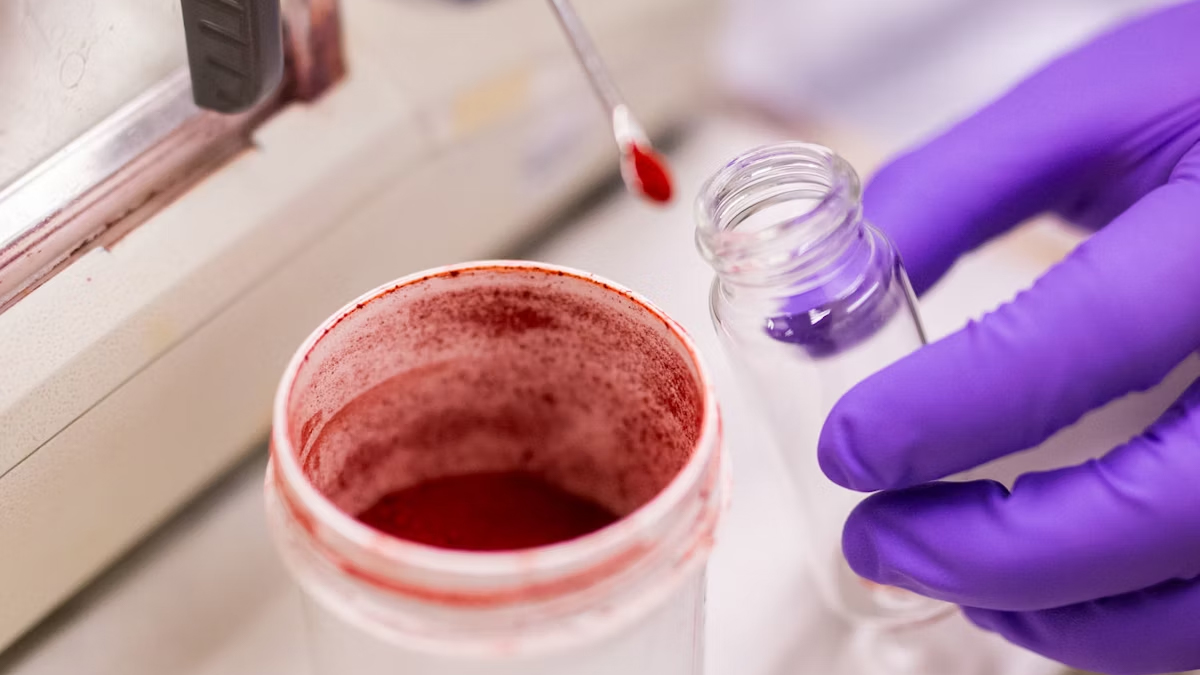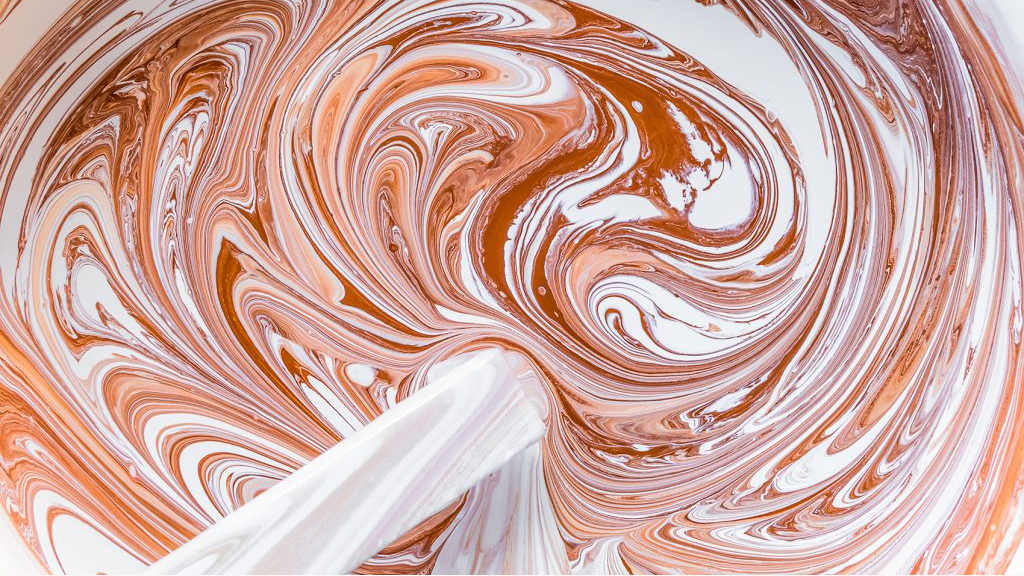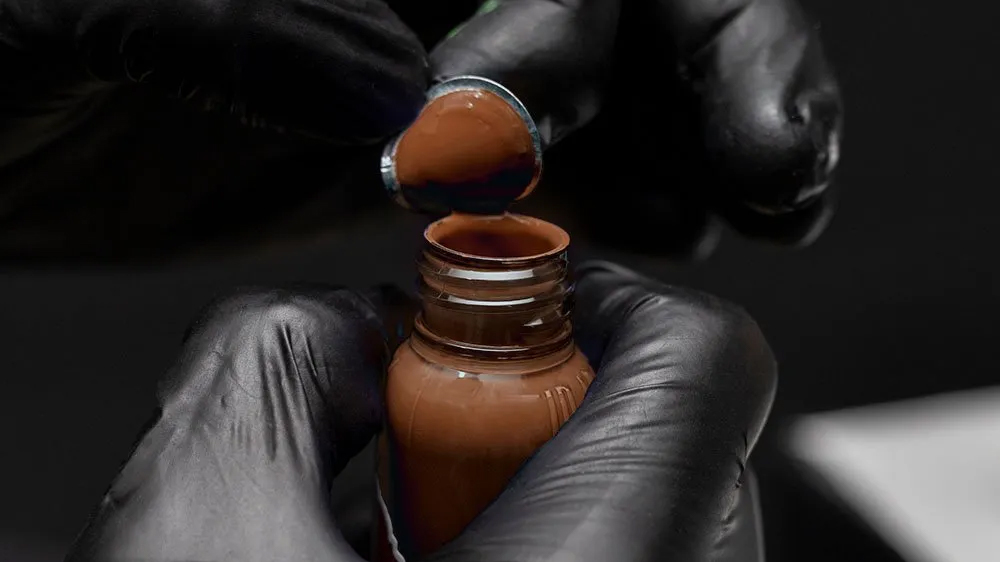How to choose pigment for microblading?
The best microblading ink is essential for creating a flawless PMU tattoo. When choosing a PMU brows tattoo pigment, it's crucial to consider multiple key factors: compatibility with the tattoo application, the pigment's inherent safety credentials, and consistent product quality. This article will break down these key points to help you accurately identify the most suitable PMU brow pigments.
The effectiveness of micropigmentation permanent makeup is closely linked to the pigment used. Choosing the right pigment is both a science and a question many beginners ask. With a wide variety of pigments on the market and varying prices, consumers often struggle to discern quality based solely on hype and affordability. We recommend reviewing the following pigment selection guide before choosing a tattoo pigment.

Safety: Is microblading pigment safe?
As we all know, safety is the top priority of all beauty projects. Tattoo pigments will penetrate into the dermis of the skin along with the PMU cartridge needle and stay in the dermis for at least 2-3 years, so their safety is very important. Currently, there are many factories producing pigment tattoo ink, but not all factories have the conditions to produce cosmetic-grade safe and non-toxic tattoo pigments. In order to pursue product profits, many factories use inferior industrial color powder for blending and directly produce industrial pigments into makeup tattoo pigment. Some consumers do not understand cosmetic tattoo pigments and only focus on the low price or publicity effect. They mistakenly apply industrial pigments to tattoo treatments. Once industrial pigments enter the human body, they may cause the following risks:
1. Severe skin allergies and inflammation
Industrial pigments contain numerous impurities, heavy metals, chemical solvents, preservatives, and other ingredients, making them highly irritating to the skin. Last year, the FDA reported cases of allergic reaction to microblading pigment.
2. Increased risk of infection
The production environment, raw materials, and processes used in industrial pigments often fail to meet sterility requirements.
3. Heavy metal poisoning
To achieve vibrant, long-lasting results, industrial pigments (especially inexpensive, brightly colored pigments) require excessive levels of heavy metals such as lead, mercury, arsenic, cadmium, and nickel. Long-term accumulation in the human body can lead to heavy metal poisoning.
4. Carcinogenic risk
Industrial pigments may contain carcinogens, such as certain aromatic amines and polycyclic aromatic hydrocarbons. The risk is that cancer may not manifest until years after brow tattoo microblading, and tattoo artists often overlook this long-term risk.

Suggestion: How to choose safe pigment?
Due to information asymmetry in the market, consumers can generally only judge the quality and safety of pigments based on the tattoo ink manufacturer's publicity, but this will inevitably be influenced by the merchants' exaggerated publicity. Therefore, whether you are purchasing brow pigment microblading online or offline, we recommend that you follow the following principles to determine whether the eyebrow tattoo pigments meet safety standards:
1. Supplier Production Capacity
Check whether the tattoo brows pigment supplier has production capacity and whether it has been verified by an independent, reliable third-party organization, such as SGS.
2. Product Ingredients
Check whether the supplier can provide a Material Safety Data Sheet (MSDS) before buying microblading pigment. In the MSDS, check whether the microblading pigment ingredients include a CI number. If not, the pigment may be made from non-cosmetic-grade industrial dyes. Additionally, check whether the reported toxicological testing indicates toxicity, including the presence of volatile solvents or strong corrosives.
3. Product Qualification
Check whether the pigment provided by the supplier meets regulatory compliance and safety requirements. For example, a CE certificate is required to ensure compliance with relevant EU directives for entry into the EU market. Furthermore, products that comply with REACH regulations can enhance consumer trust and demonstrate safety for the environment and human health.

Usage: What pigment is used in microblading?
Once we've addressed pigment safety, we need to further consider the product's suitability. In reality, eyebrow microblading pigment isn't simply ink; it comes in different forms, suitable for different scenarios, areas, and demographics. Generally speaking, tattoo pigments can be categorized as liquid, emulsion, or cream, with their fluidity and penetration rates decreasing in descending order.
1. Application
Microblading eyebrows tattoo machine: Liquid, Emulsion
Semi-permanent microblading pen: Cream
2. Suitable for people
Beginners (including tattoo artists with less than 3 years of experience): Emulsion, Cream
Professional tattoo artists: Liquid, Emulsion, Cream
3. Suitable Areas
Eyebrow semi-permanent makeup: Liquid, Emulsion, Cream
Eyeliner semi-permanent makeup: Liquid, Emulsion, Cream
Lip blush semi-permanent makeup: Liquid, Emulsion

Recommendation: What is the best ink to use for microblading?
What's the ideal pigment for brow tattoo makeup? For the best microblading ink, our recommendations are as follows, depending on the tool used:
1. For machine application: Emmeline PMU Pigment Ink
The water-based base and small molecule structure allow for efficient pigment penetration, resulting in over 95% color retention. With 17 exclusive brow colors, it can precisely match the deep brows of Europeans and Americans to the natural tones of Asians, making it the ideal choice for PMU machine microblading and powder brow tattoos.
2. For manual application: Emmeline PMU Pigment Cream
The oil-based base keeps the pigment cream moist during application, preventing drying and affecting the tattoo's appearance. It also offers a rich range of 15 colors, from a natural nude brown to a rich dark brown, as well as micropigmentation eyebrow color correction, to meet the color needs of various brow shapes and skin tones.
If you are interested in Emmeline PMU pigments, please contact us to view the colors chart and get more pigment selection tips!
- Safety: Is microblading pigment safe?
- 1. Severe skin allergies and inflammation
- 2. Increased risk of infection
- 3. Heavy metal poisoning
- 4. Carcinogenic risk
- Suggestion: How to choose safe pigment?
- 1. Supplier Production Capacity
- 2. Product Ingredients
- 3. Product Qualification
- Usage: What pigment is used in microblading?
- 1. Application
- 2. Suitable for people
- 3. Suitable Areas
- Recommendation: What is the best ink to use for microblading?
- 1. For machine application: Emmeline PMU Pigment Ink
- 2. For manual application: Emmeline PMU Pigment Cream

10 Best Numbing Creams for Tattoos in 2026: Ranked by Pain Relief and Safety

Does Numbing Cream Work for Tattoos? The Ultimate Guide to a Pain-Free Session

The Ultimate Guide to Tattoo Aftercare Cream: Healing & Vibrancy for 2026 and Beyond

Lash Lift and Tint 2026: Your Ultimate Guide to Defined, Curled Lashes

Best Numbing Cream for Tattoos 2026: The Ultimate Guide for Pain-Free Ink

Top Microblading Brow Pens for 2026: Precision, Pigment, and Professional Results
Payment
What methods of payment are accepted?
We accept various payment methods including T/T (Telegraphic Transfer), Western Union, Credit cards, Alipay, WeChat, and more.
Micro Blade
What size needle for microblading eyebrows? U-curved needle or a slope needle?
Slope Needle: The tip of a tilting needle usually presents a beveled angle. This shape is suitable for detailed line and contour work and is commonly used for contour and fine areas of tattoos, but may require some skill to ensure smoothness and consistency of the line.
U-curved Needle: U-curved needles have a U-curved tip and usually consist of multiple needles. The U-curved needle design distributes ink more evenly across the skin. It is more suitable for color filling and shading effects and gradient effects on large areas, and can cover a larger area in a short period of time. However, you need to control the pressure and speed to avoid uneven color.
To summarize, the choice of needle depends mainly on the design of the eyebrows semi permanent makeup and the desired effect.
Secondary Numbing essence
Can super numb tattoo cream be used for secondary numbness during treatment?
For secondary numbness after skin breakage, we recommend using secondary numbing essence. This is because pre numb tattoo cream takes at least 25 minutes to take effect, and the waiting time will be longer, while the secondary numbing essence only takes 3-5 minutes to take effect, which will not delay the treatment time. At the same time, since the patient's tattoo is in a state of broken skin, too long waiting time will increase the risk of infection.
Logistics
If I have a freight forwarder in China, can you deliver to them?
Yes, we are located in Guangzhou, China. You can provide us with the freight forwarder's address and we will calculate the freight after checking. If your freight forwarder informs that relevant fees are required for delivery, we will calculate and charge you the relevant fees (such as warehousing fees, weighing fees, unloading fees, etc.).
Pre-inked Mapping String
Do you provide any other package for pre-inked mapping string?
Yes, we provide different package for pre-inked mapping string: Metal tube / Plastic bottle with metal lid / Paper box. Besides that, we also support making customize outer box for the pre-inked mapping string.

5g Cell Repair Essential Balm

Super Numb Tattoo Cream

Hybrid Powder Microblading Pigment Ink

Disposable Microblading Pen
What product do we have?




Instagram
Facebook
YouTube